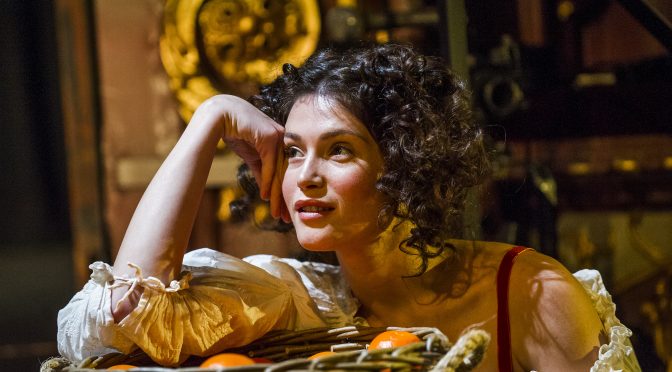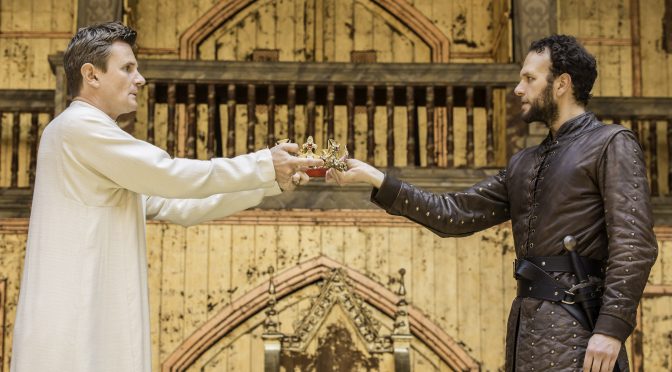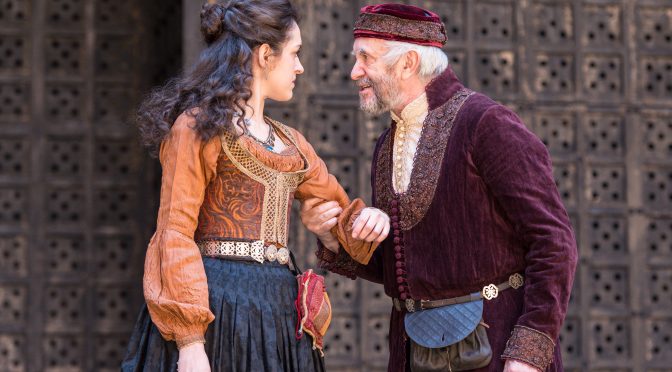Historical romps are not uncommon on the British stage. And the theatre loves referencing itself. Combining the two, with the story of 17th-century actress-turned-courtier Nell Gwynn, makes sense and provides a hit for playwright Jessica Swale. There’s plenty of fun from Gwynn’s love affair with King Charles II, while John Dryden’s hastily scribed plays add a touch of behind-the-scenes Noises Off style laughs. Having started at Shakespeare’s Globe, this show retains the venue’s vibe, pleasing the crowd with great gags and catchy tunes. No time for stuffiness here – this is a terrific night out.
Gemma Arterton’s performance in the title role is a joy. She’s cheeky, chirpy and utterly charming. Easily carrying Swale’s pointed remarks on women in the theatre and making the risqué comedy look effortless, Arterton proves a queen of innuendo. There are superb cameos from Sarah Woodward and Sasha Waddell as the other women in Charles’ life – both suitably overblown and over-painted – but the glorious Michele Dotrice steals every scene as Nell’s dresser, bringing the house down with a single salutation to the King and getting more laughs out of playing a triangle than you’d have thought possible.
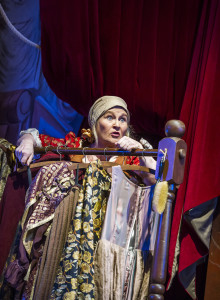
There are men in the play, too and it’s satisfying that for once they take a back seat. Greg Haiste has the best lines as the actor who used to perform women’s roles before those “actor-esses” came along. And there’s a fine turn from David Sturzaker as Charles, who gracefully allows himself to be upstaged by a dog. The chemistry between the King and his mistress is down to the performances and builds touchingly. And yet it’s only fitting that the irresistible Arterton grabs our main attention. As for demanding better parts for women, condemning Shakespeare’s Juliet as a “noodle”, the play provides its own irrefutable answer.
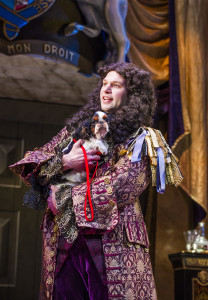
A lot of Swale’s script should really be too downright silly to work. The comedy is as broad as a pantomime and historical references land with a bang that I presume is designed to pop any pomposity. More seriously, attempts to give the characters depth – let’s make the merry Monarch melancholy – are ham-fisted. Subtle it ain’t, but it works. And in spectacular fashion, with direction from Christopher Luscombe powering the play along and a series of performances that rocket the piece into the comic stratosphere.
Until 30 April 2016
Photos by Tristram Kenton

